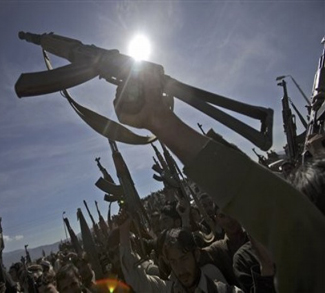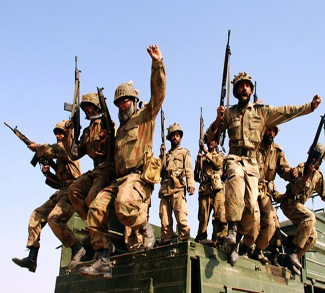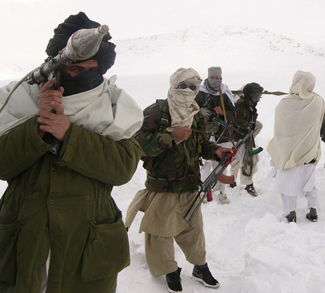FORECAST
In a stark example of how drastically a situation can change in just one week, it seems that Pakistan is once again teetering on the brink.
This past week has brought two shocks which threaten to further destabilize Pakistan’s already-tenuous politics: the brutal assassination of Salman Taseer in Islamabad and the sudden departure of the Muttahida Quami Movement (MQM) from the governing PPP coalition. Both incidents point to a spiral of political destabilization over the next few months as the forces of Islamic fundamentalism, a lack of essential services, and widespread hopelessness push up against political institutions that are increasingly fragile.
Why exactly the MQM chose this moment to rob Zardari’s PPP government of its critical majority in the Pakistani parliament is a critical question. While the answer likely has something to do with the obvious political practicality behind such a move, many observers are pointing the finger at ISI meddling. In terms of political expediency, the exodus couldn’t have come at a better time. In leaving the PPP-led coalition, the MQM has positioned itself on the right side of populist sentiment on two critical policy issues: the RGST and rising gas prices. Both policies are as critical to the PPP as they are unpopular with the lower-middle classes in Pakistan. Coming out against the RGST also has the added benefit of boosting the MQM’s nationalist credentials, as the RGST tax reform package is widely seen as a bitter pill being forced down Pakistan’s throat by Western donor countries.
As is often the case with political intrigue in Pakistan, the ISI is also frequently popping up in conversations on the MQM’s exit. In late December, MQM chief Altaf Hussein publically decried the summoning of the standing ISI chief by a US court. Speculation is rife that this latest move to destabilize the PPP government was in fact born out of collaboration between MQM and the ISI, with the ultimate goal of the latter being to expand the security services’ influence within the resulting political vacuum.
The assassination of Salman Taseer, a popular liberal PPP politician and standing governor of Punjab, threatens to take popular anxiety looming over the PPP’s broken coalition and add a violent element to it. The assassin’s motivation- mainly, the late governor’s support for reforming Pakistan’s blasphemy laws- stands as yet another reminder that Pakistan’s political institutions have become a battleground between moderates and extremists. Already, PPP supporters have taken to the streets in Lahore to protest the murder of the late governor, and a new bout of street violence should be expected as the national debate over blasphemy laws is far from finished.
In all this, we see a deepening of the chaos that permeates politics in Pakistan, and the two questions on everyone’s minds are: when will elections be held and can they produce a stable government? At this point, the PPP’s position is so tenuous that elections have become an inevitability; even if some kind of coalition deal is drawn up to squeeze out a little more time. Whenever these elections are eventually held, they will be coming at a critical time for Pakistan, for if the extremist rot isn’t quickly excised from the Pakistani political process, a coup or even state collapse isn’t too far-fetched in the future.
Zachary Fillingham is a contributor to Geopoliticalmonitor.com



